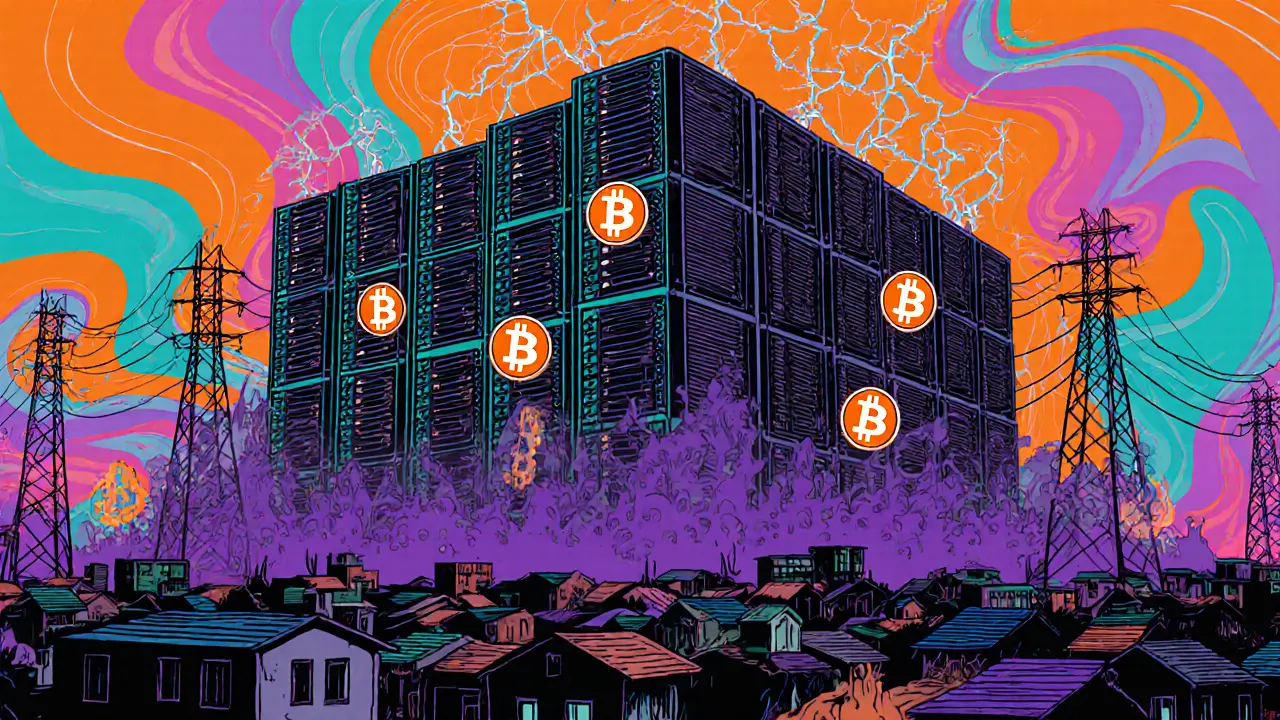Finance & Technology: How Crypto Regulations and Energy Crises Are Reshaping Digital Finance
When we talk about Finance & Technology, the intersection of digital finance systems and technological innovation that drives how money moves, is stored, and regulated in the modern world. Also known as fintech, it's not just apps and wallets—it's the rules, power grids, and political decisions that decide who gets to mine Bitcoin and who gets to keep the lights on. This isn’t science fiction. It’s happening right now in places like Angola, where the government shut down crypto mining to save electricity for homes.
Behind every crypto mining rig is a real power bill. Crypto regulation, government policies that control how digital assets are mined, traded, or taxed isn’t just about stopping fraud—it’s about who gets priority when the grid is overloaded. Angola’s 2024 ban didn’t come out of nowhere. It followed a surge in illegal mining that drained up to 20% of the country’s electricity. The law now punishes offenders with up to 12 years in prison and seized over $37 million in equipment. That’s not a warning. That’s a wake-up call for anyone thinking crypto mining is a free-for-all.
And it’s not just Angola. When a country’s power supply can’t handle both hospitals and Bitcoin miners, the choice is obvious. Energy crisis, a situation where demand for electricity exceeds reliable supply, often forcing governments to make hard trade-offs is becoming a key factor in where and how blockchain projects can grow. Countries with unstable grids are starting to see crypto not as innovation, but as a luxury they can’t afford. Meanwhile, exchanges and token projects are quietly adjusting—some are pulling out, others are moving to places with surplus energy.
This is why Finance & Technology can’t be understood in a vacuum. You can’t talk about the future of digital money without talking about who controls the power, who writes the laws, and what happens when those two collide. The posts here don’t just report news—they show you the real stakes. From mining bans to exchange crackdowns, you’ll see how local decisions ripple across global markets. No fluff. No hype. Just the facts that affect your wallet, your strategy, and your next move in crypto.
Egyptian Banks and Crypto Transaction Monitoring: How Restrictions Are Enforced
Egyptian banks are legally required to monitor and block all cryptocurrency transactions under strict central bank regulations. Learn how detection works, why accounts get frozen, and what it means for everyday users.
Angola Crypto Mining Ban as of April 2024: What Happened and Why It Matters
Angola banned cryptocurrency mining in April 2024 to protect its fragile power grid. The law carries prison sentences up to 12 years and led to a major international crackdown, seizing over $37 million in mining gear. The move prioritized residential energy access over crypto profits.

